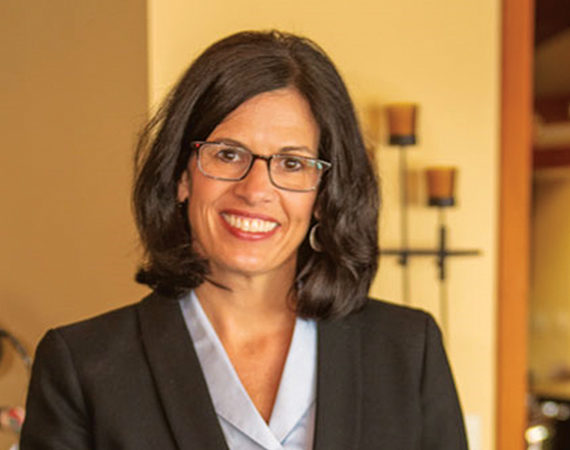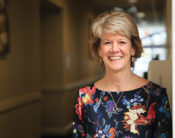Joe was diagnosed with dyslexia at age 4. Unknown to Joe and his family at that time, the reading disorder would have a clear impact on his post-secondary schooling and career path.
Following his 2016 graduation from Red Wing High School, Joe received a two-year degree in robotics and engineering from Madison Area Technical College in Madison, Wisconsin. At age 21, he is approaching one year on the job at Hartfiel Automation in Eden Prairie. He is a liaison between the engineering and sales staffs, providing sales staff with pre- and post-sales support. He also works with customers on programming new automated systems.
Joe’s challenges, as well as his exceptional skills, quickly became apparent in his high school studies. Joe says he liked engineering and math, but it was complicated. He didn’t see himself sitting in college classrooms for another four years. “I wouldn’t have made it. I would have been too stressed if it was all book learning. I wanted to build things.”
At the same time, his mother Barb Haley says, “His spatial reasoning was off the charts. He could see everything in 3D and could tell you how it was put together.”
The circumstances prompted mother and son to pursue starting an extracurricular FIRST Robotics Club during Joe’s sophomore year. The school district gave them its blessing but offered no financial support. Together, Barb and Joe raised $50,000 to get the program off the ground. The coach was a volunteer.
“It started with my interest in workforce,” Barb says, who is currently serving her second term in the Minnesota House of Representatives.
The program met instant success on a variety of fronts: The students excelled at competitions, and they also connected with employers who provided financial support and mentors.
At its core, the club provides real-world experience. Participants learn new skills and work as a team in an environment that strengthens an appreciation of the science and technology fields. They gain hands-on experience in all phases of the project from fundraising and marketing to designing and building. Problem-solving is a common thread. Leadership skills involve improving communication, confidence, and persistence.
It’s the kind of training that Barb and Joe believe should be incorporated more broadly into high school curricula. Barb has used her time at the state Capitol to focus on the value of experiential learning and has explored ways to incorporate that into high school and post-secondary curricula. Her son agrees. “Classes must do a better job of connecting industry and education,” Joe says. “There’s still the stigma that the ‘smart students’ go on to college, while the others default to two-year post-secondary programs.”
Typical textbook classes have defined outcomes, Joe continues. Experiential learning is open-ended with students spending many hours in labs.
“This is teaching the subject matter while learning it,” Barb says.
Barb’s proudest legislative accomplishments at the Minnesota Legislature are the creation of workforce development scholarships and the youth skills training program, both of which Minnesota employers are the net beneficiary. Companies of all types and sizes across the state are increasingly challenged to find skilled workers, and the shortage is especially evident in technical skills.
Beginning in fall 2018, up to 400 scholarships of $2,500 are awarded to new students enrolling at any Minnesota State college for an associate’s degree, diploma, or certificate program that prepares graduates for careers in high-demand sectors including advanced manufacturing, agriculture, health care services, and information technology.
The youth skills training program at the Department of Labor and Industry supports the development and implementation of experiential learning opportunities for students 16 and older. These locally developed programs are implemented in cooperation with employers and schools. The programs include both classroom instruction and paid part-time employment.
The schools in Goodhue County, Barb’s district, formed a collaborative and were one of five districts across the state to receive a pilot grant to develop a youth skills training program.
“We need to fund it again,” Barb says. “Developing a skilled workforce is the biggest economic development issue for my district and the state.” Student skills must be matched with employer needs, she adds.
Joe’s skills are in stark contrast to those of his parents, Barb and Tim, who both graduated from four-year colleges.
“We can barely screw in a light bulb,” she jokes. “We have zero technical ability.”
Joe quickly chimes in: “None.”
While Barb always was confident in her son’s skills (his engineering abilities), she wondered “what they would look like” in a career path. Now, she counsels her daughter Maria—a liberal arts major at Minnesota State University, Mankato—to make sure she also graduates with the marketable skills necessary for jobs in today’s economy.
The experience with her son has motivated Barb for what she wants to do following her legislative career: work with high school students to help them find out what excites them and align their aptitude with hands-on learning experiences.
“There are lots of different ways to learn,” she says. “We must look at all the learning components and help kids DO while they LEARN.”
…
Featured story in the Summer 2019 issue of Enterprise Minnesota magazine.


